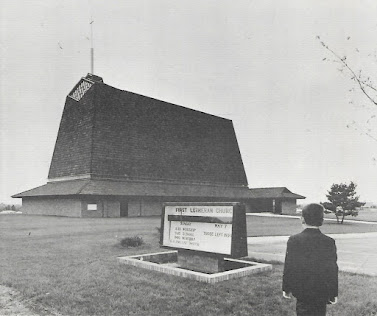Recognizing God’s Presents
By Bishop Brian Maas
For the mountains may depart and the hills be
removed, but my steadfast love shall not depart from you, and my covenant of
peace shall not be removed, says the Lord, who has
compassion on you. –Isaiah 54:10
Nebraska has no mountains, and
most of its hills aren’t that steep, but God’s declaration stands. Even if time
or tragedy completely reshapes the geography around us, God’s steadfast love
will remain firmly in place.
We’ve seen plenty of shifting
geography in recent weeks. Rivers overflowed their banks and even changed
courses; hills were eroded and plains had new berms of silt heaped on them.
Houses, buildings, and livestock were damaged, destroyed, or simply disappeared.
People lost their homes, their livelihoods, even their lives. The constants of
so many individuals, families, and communities are forever changed, even gone.
The hills and mountains of their hearts’ geography have been removed.
But God’s steadfast love shall not
depart. God’s covenant of peace, of shalom,
of wholeness shall not be removed. God’s compassion—literally, con + passion, “suffering with”—is
constant.
Because we are God’s people,
Christ’s Body on earth, that compassion characterizes us as well—at least in
our most faithful moments. Moved by Christ’s love, we do what we can to help
those most impacted find peace, shalom, God’s wholeness once more.
In our gifts to aid recovery, our
time and energy in its work, our prayers for all involved, God is providing
gifts, loving presents, to those who suffer. The time and resources we have are
all on loan from God, and as we share them, we offer not only our gifts, but
God’s.
Seeing God’s work and presence
within those gifts isn’t that difficult. In our transactional culture, any time
something is simply given, with no expectation of something in return, it’s
noticeable and noteworthy. It’s also easy to feel like we’ve done our good deed
when we’re the ones making those gifts, like we’re the givers and others are
the recipients.
God doesn’t work quite so neatly
or simply though. When Jesus says on the last night of his life that he will go
and prepare a place for his disciples, “so that where I am, you may be also,”
he isn’t just talking about the heavenly mansion in the sweet by-and-by. He’s
talking about the Reign of God that’s ever breaking into our world. We’re used
to the thought that wherever we go, Jesus goes with us. We think less often
about the fact that wherever Jesus goes, we’re to go with him.
Opportunities such as those
provided by disaster are gifts to us who would be givers, possibilities for us
who would be presenters. In recognizing need, we recognize Jesus. The changed
geography of others’ hearts becomes our invitation to be part of God’s
compassion, love, and shalom. In those opportunities, we recognize the presents,
the invitational gifts, of God.
Where Jesus is, there we will be
also. We surrender to being God’s presents to others; we give in thanksgiving
for the presents those others are to us.
God of generosity, compassion, and shalom: hear our prayers for those
whose mountain-like constants have been removed. Use us and all we have as your
gifts for the re-creation of the geography of their hearts. Help us to see in
them your presents, your gifts of invitation, your very self. Where you are,
take us also. Amen




Comments
Post a Comment